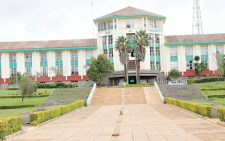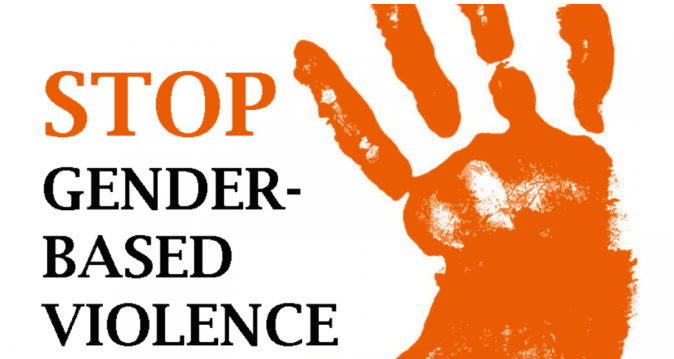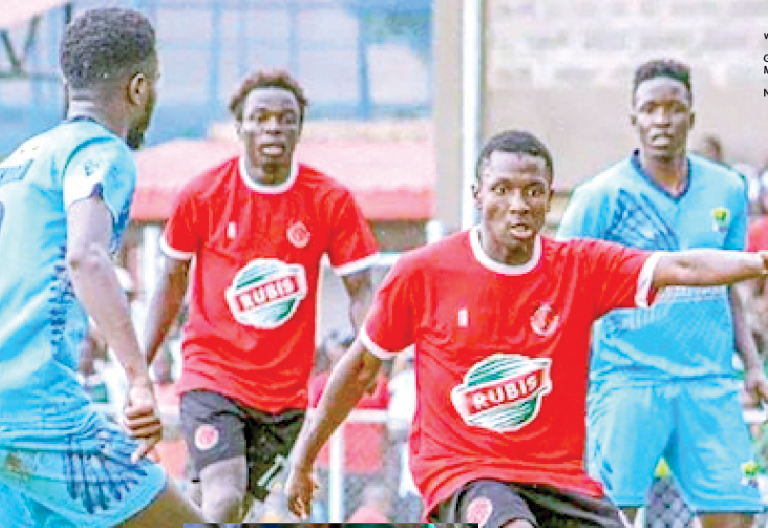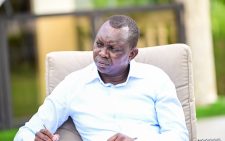Leakage cloud hangs over KCSE examination
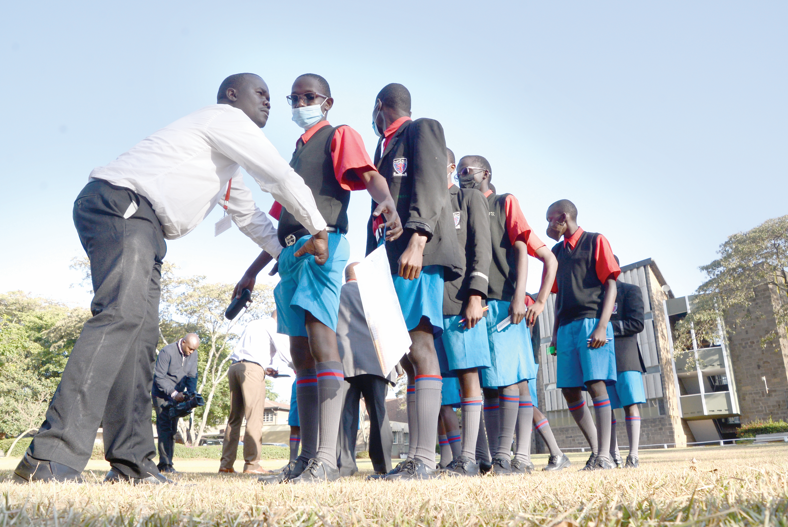
More than 900,000 Kenya Certificate of Secondary Education (KCSE) examination candidates begin the tests today amid concerns over their credibility.
The students commence compulsory papers, with students sitting the Chemistry and English (Functional Skills) exams today.
Despite the assurance by Cabinet Secretary for Education Ezekiel Machogu that the government had put extra efforts to ensure the integrity of the examinations, there are fears that some unscrupulous people may have accessed and started selling the papers.
Machogu had earlier said the government had identified and sealed all exam leakage loopholes saying that any effort to compromise the tests would be dealt with ruthlessly.
“My ministry will ensure that appropriate action will be taken against officers who contravene the rules and regulations. The government will not spare any person found to be cheating in examinations,” Machogu said last week.
“One of the key strategies to be implemented with effect from 2023 is collection of examination papers twice a day for the KCSE examination. This will ensure that no candidate has access to the examination prior to the set time,” the CS stated.
Some 567 containers will be used for exams, which is an additional 82 from last year.
Following various engagements, the Kenya National Examination Council (KNEC) mapped all examination centres to the nearest distribution centres to avert delays at the start of the second exam session.
In re-aligning examination centres within the same sub-county, Machogu said consideration was distance and terrain and was applicable only in sub-counties which had more than one container already installed.
In consultation with Sub-County Directors of Education (SCDEs), the affected examination centres were aligned to the containers that were easily accessible, considering the nature of the roads and the distance.
“Alignment of examination centres to distribution points was not within their sub-counties but within their county. In this category, the key considerations were security, terrain and distance,” the CS explained to the National Assembly committee on education.
Counties where examination centres were re-aligned due to security related issues include West Pokot, Elgeyo Marakwet, Garissa, Wajir and Mandera.
Fake papers
In Soy sub-county, some centres were re-aligned to Turbo and Moiben because of the distance and the terrain and only centres that were over 20km from the current container were re-aligned.
“Only 28 examination centres in eight sub-counties were re-aligned to containers outside their counties. A total of 82 additional containers for new Sub-Counties and issues terrain, distance and security,” the CS stated.
Machogu said the 2023 examination and assessment materials were secure and urged candidates and parents to desist from getting involved in unethical activities.
KNEC Chief Executive David Njengere also said there has never been leakages and that no one should be misled into buying fake papers.
“The word leakage has been misused in this country. Leakage is very serious. If there is a leakage, that means those certificates cannot be recognised anywhere globally. What we have been experiencing is early exposure, there has never been any leakage. Leakage would mean someone is able to share the paper to be done on Monday and you can confirm that no one has the papers,” Njengere said last week.
But despite the assurances, exam cartels are said to have devised new tactics to sell papers, including sneaking them via telegram, a cloud-based mobile and desktop messaging App.
Exact leakage
The alleged tests which the sellers are distributing at night are going for between Sh3,000 and Sh7,000 depending on whether the buyer wants the papers accompanied by marking schemes or not.
The cartels, using coded language, are allegedly using different telegram accounts which are deemed safer and untraceable by authorities to conduct the illegal business.
“Single paper is Sh3,000. So far, only two chemistry papers have been sent. It’s certain that they will be the exact leakage. We will confirm before Monday night and then we will announce the paper to focus on,” a coded message on a Telegram forum identified as KNEC exam leakages reads.
Some teachers, who sought anonymity over fears of being victimised, claimed that some of the most leaked papers are science subject practicals, some of which will be done close to the last day of the national exams.
For instance, the chemistry practical paper that will, according to the timetable, be done on November 10, 2023 is alleged to have been leaked.
Teachers’ privy to the information said the leaked paper is similar to the one that was dispatched to lab technicians and chemistry teachers to facilitate the purchase of apparatus and chemicals.
“The leaked paper is similar to the one that schools are using to prepare for chemistry practical tests and how it got to the public is baffling. A lot needs to be done to restore the credibility required in national exams,” a teacher told People Daily.
Other papers, some with marking schemes, are reportedly released at night, few hours to the exam.
Last week, a Christian Religious Education (CRE) teacher who works in Kiambu County was arrested for reportedly selling fake exam papers.
Nicholas Ngumbau Kalewa, a teacher at St. Lillian Academy in Gikambura, is alleged to have opened over 10 WhatsApp and Telegram accounts where he was selling the papers.
According to the Directorate of Criminal Investigations (DCI), Kalewa was selling each examination paper at Sh1,500 or Sh2,000 if it comes complete with its marking scheme.
Kalewa was arrested after the investigators reportedly infiltrated his groups posing as students seeking to purchase the examination papers.
“Several SIM cards believed to be used in the fraud were also found in his possession,” the agency further added.
Cases of national exam malpractices, especially in the Kenya Certificate of Secondary Education (KCSE) are reported almost every year, a situation that has continued to taint the credibility of exams and certificates offered by KNEC.
According to the experts, the security of the examinations starts from setting and administering all the way to marking, with proposals that practising teachers should be exempted from the process due to conflict of interest.






